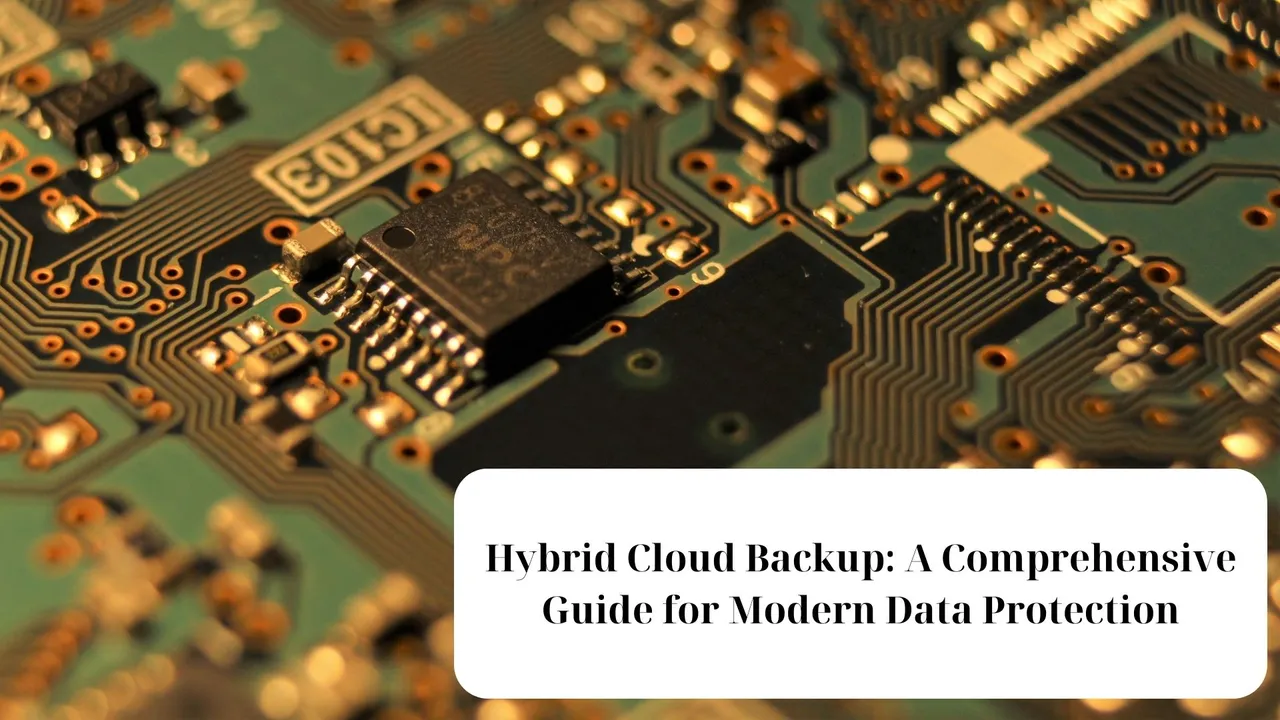The hybrid cloud backup solution has emerged as a powerful strategy for businesses aiming to leverage the combined benefits of both private and public cloud infrastructures. This approach not only offers enhanced flexibility and scalability but also ensures robust data protection and disaster recovery capabilities. In this in-depth guide, we'll explore the intricacies of hybrid cloud backup, its importance, implementation strategies, and the future it holds for data protection.

Introduction to Hybrid Cloud Backup
The Essence of Hybrid Cloud Backup
Hybrid cloud backup integrates the security of private cloud services with the scalable and cost-effective features of public cloud storage. This blend provides a versatile environment for backing up critical data while ensuring its availability and integrity across diverse scenarios.
Evolution and Importance
The evolution from traditional backup solutions to cloud-based systems has been significant, with hybrid models now at the forefront. This transition underscores the growing importance of data in business operations and the need for more sophisticated protection mechanisms.
Understanding Hybrid Cloud Backup Systems
Core Components and Architecture
A deep dive into the architecture reveals a setup where data can be stored on-premises, in a private cloud for sensitive information, and in a public cloud for less critical data. This structure facilitates a balanced approach to data storage, ensuring optimal security and accessibility.
Public vs. Private vs. Hybrid: Distinctions
Understanding the differences between public, private, and hybrid clouds is crucial. Each offers unique benefits, but the hybrid approach is particularly noteworthy for its ability to tailor data backup solutions to specific business needs.
The Role of Hybrid Cloud in Data Protection
Enhancing Data Security and Compliance
Hybrid cloud backup systems are designed with advanced security features to protect against cyber threats and ensure compliance with regulatory standards. This is especially vital in sectors like healthcare and finance, where data sensitivity is paramount.
Disaster Recovery Capabilities
One of the standout features of hybrid cloud backup is its disaster recovery prowess. By enabling data replication across multiple locations, businesses can ensure quick recovery times in the event of data loss incidents.
Implementing a Hybrid Cloud Backup Strategy
Assessment of Needs and Planning
The first step in adopting a hybrid cloud backup solution involves a thorough assessment of business needs and data criticality. This ensures that the implemented strategy aligns with specific organizational requirements.
Choosing the Right Hybrid Cloud Backup Solutions
Selecting the appropriate tools and services is crucial. Factors to consider include the provider's reputation, the scalability of solutions, and the level of customer support offered.
Advantages of Hybrid Cloud Backup
Flexibility and Scalability
Hybrid cloud backup solutions stand out for their ability to adapt to changing business needs, allowing companies to scale their data backup and storage requirements as they grow.
Cost Efficiency and Performance
By optimizing resource utilization and leveraging cloud storage, businesses can achieve significant cost savings and performance improvements over traditional backup solutions.
Challenges and Solutions
Data Security Concerns and Compliance Issues
While hybrid cloud backup offers enhanced security, navigating the complexities of data protection and compliance remains a challenge. Employing encryption and regular security audits are among the strategies to mitigate these concerns.
Managing Complexity and Operational Challenges
The hybrid cloud environment can introduce operational complexities. Simplifying these through automation, and adopting integrated management tools can provide relief.
Future Trends in Hybrid Cloud Backup
Innovations and Emerging Technologies
The future of hybrid cloud backup looks promising, with ongoing innovations in cloud technology and the integration of AI and machine learning for smarter data management.
Integration with AI and Machine Learning
These technologies are set to revolutionize hybrid cloud backup by automating data management tasks, enhancing security, and improving disaster recovery processes.
Hybrid Cloud Backup for Different Industries
Healthcare and Finance: Case Studies
The healthcare and finance sectors have particularly benefited from hybrid cloud backup, with solutions tailored to meet stringent data protection and privacy requirements.
Retail and Manufacturing: Custom Solutions
Similarly, the retail and manufacturing sectors leverage hybrid cloud backup for its scalability and flexibility, ensuring data integrity and accessibility across global operations.
Best Practices for Hybrid Cloud Backup
Data Management and Optimization
Effective data management and optimization strategies are key to maximizing the benefits of hybrid cloud backup. This includes regular data audits and the implementation of data tiering to optimize storage costs.
Regular Testing and Recovery Plan Updating
To ensure the reliability of the hybrid cloud backup system, regular testing of backup and recovery processes is essential. This helps identify potential issues and ensures a swift response during actual data loss incidents.
The strategic importance of hybrid cloud backup for businesses is undeniable. Offering unparalleled flexibility, security, and cost-efficiency, it represents a future-proof strategy for data protection in an increasingly digital world. Solutions like NAKIVO Backup & Replication play a crucial role in this landscape, providing reliable, scalable, and user-friendly options for companies looking to secure their data across both private and public cloud environments. As technology continues to advance, hybrid cloud backup, with the support of industry leaders like NAKIVO, will remain at the forefront of business data management, ensuring that organizations can protect their most valuable asset—data—against ever-evolving threats.
